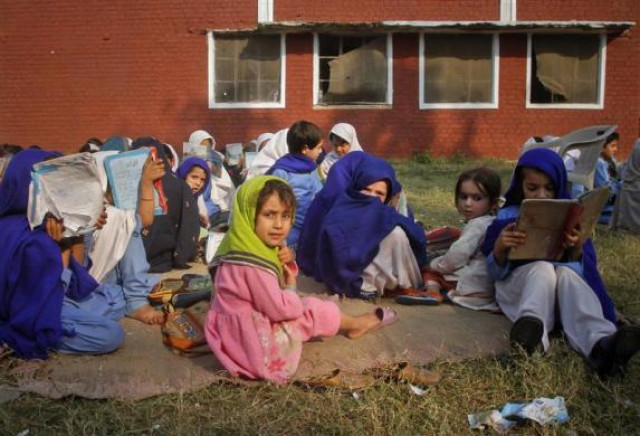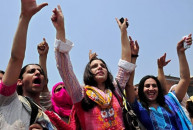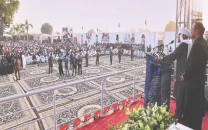Improving schools: K-P govt recruiters call for drastic educational reforms
Public service commission proposes hiring more qualified teachers

PHOTO: REUTERS
“In the modern world it is not tanks and aircraft nor guns which determine the strength and power of a country. It is knowledge and education which ultimately determine a nation’s position in the world,” states the PSC’s latest annual report. “We intend to analyse the causes of the downfall of our education system and what should be done before it is too late.”

The PSC report highlights five main reforms that the commission believes will help improve the quality of education in the province. It recommends revamping the curriculum to include a greater emphasis on the social sciences and technical and scientific disciplines, making at least primary education completely free for all students, recruiting better teachers, strengthening the enforcement mechanism for standards and policies regarding teacher attendance, and introducing a better management system to ensure that any reforms introduced are sustainable in the long run.
On the teachers’ front, the PSC recommends hiring people with either a master’s degree or at least a bachelor’s degree in a relevant discipline like education. The commission points out that it received 19,000 applications from people with graduate degrees for 338 advertised positions, suggesting that there are more than enough people who would meet that criterion to be hired as teachers in the public schools in the province. In order to attract those candidates to teaching jobs, the commission recommends increasing salaries.
Over 90% of the province’s children attend government-owned schools, where the standard of education is often abysmal. Teacher absenteeism is rampant and most teachers have absolutely no incentives to do their jobs properly, or disincentives to shirk their responsibilities. Promotions are based on length of tenure, not competence. All teachers get promoted after serving the requisite number of years, without any evaluation of their performance at all.
Part of the problem is that supervisory mechanism itself is highly lax, with District Education Officers and lower staff hardly ever inspecting schools at all. To fix this problem, the provincial government had introduced a management cadre, but to be eligible for a job in the management, one has to currently be a teacher in the already crumbling system, most of whom have no incentive to change the way things are running. This means that no outsiders can join as managers to fix the system. The commission recommends abolishing this rule to allow new people to join the management of the province’s education system.
The PSC report also highlighted the need for curriculum reform. “There is a paramount need for curriculum review and reforms to bring them into conformity with the needs of modern times, be it in the fields of social sciences, technical and scientific disciplines, information technology and computer sciences, language and literature,” states the annual report.
The commission also calls for making primary education in the province completely free, including providing students with the requisite books for their curriculum. It recommends initiating these reforms in a small number of schools, including teaching technical subjects in English, before spreading the reforms to other parts of the province.
Published in The Express Tribune, May 9th, 2015.



















COMMENTS
Comments are moderated and generally will be posted if they are on-topic and not abusive.
For more information, please see our Comments FAQ